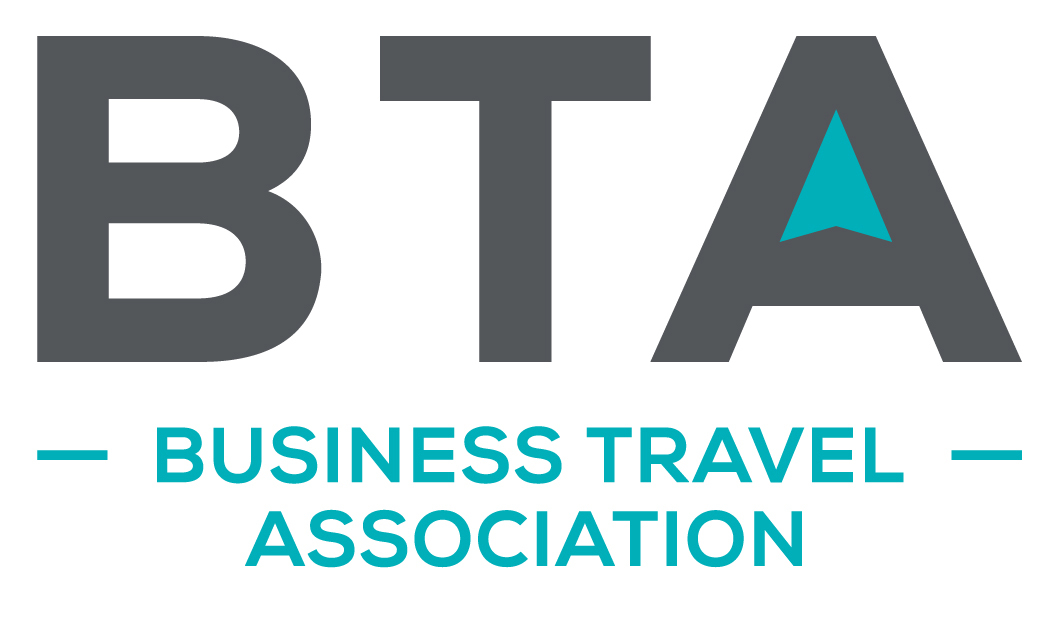How to Combat the Fragmentation of Business Travel Content
a summary of the BTA's "Navigating Fragmentation in Corporate Travel" whitepaperThe Business Travel Industry is Constantly Changing…
With change comes increased complexity and content fragmentation. In a recent whitepaper published by the Business Travel Association (BTA), content fragmentation is described as: “The lack of ability to provide consistency in service, data, and content across corporate travel; arisen from challenges and complexities from diverse content sources, formats and multiple distribution channels”.
In other words, as the business travel world expands and new technology (including AI) continues to offer the industry bigger and better tools to inspire innovation, travel management companies (TMCs) will need to work smarter to maintain a consistent service offering that gives their clients all the content they could ever need, all in one place.
Fragmentation is unavoidable. Suppliers want to choose their channels and distribution platforms. We should be striving for a fair, balanced relationship to make content available, with parity and accessibility to maximise efficiency throughout the whole value chain and support business travel.” – Marcel Forns Bernhardt, Director General of the Guild of European Business Travel (GEBTA).
To address the challenges of content fragmentation and offer insights into a potential solution, the BTA alongside GEBTA in Spain and the Association of Travel Management Companies (ATMC) in Australia worked with the impartial support of Black Box Partnerships to commission a whitepaper titled “Navigation Fragmentation in Corporate Travel.
In this article, we identify the report’s key findings and discover how the future of the business travel sector might look.




What are the Main Challenges of
Content Fragmentation?
The whitepaper describes content fragmentation as having reached “unprecedented levels”, a conclusion backed by a consensus of perspectives gathered from business travel suppliers, TMCs, and corporate buyers. These insights enabled researchers to identify the key challenges of content fragmentation: technology & data integration, operational complexity, New Distribution Capability (NDC) consistency, and the uniqueness of small and medium enterprises (SMEs).
1. Technology & Data Integration
The whitepaper concludes that there is a lack of seamless integration between different platforms and systems, creating challenges for service delivery and operations.
The report highlights a critical need for data to be standardised, for travel content management processes to be improved, and for technology to complement different content sources better, irrespective of location or whether users are a TMC, a supplier, or a corporate buyer.
2. Operational Challenges
for TMCs
Content delivered through multiple sources and platforms has increased operational complexities for TMCs, making it difficult for many to provide the best value to their customers.
Fragmented content is putting significant pressure on TMCs, both financially and in terms of service, as it complicates reporting, traveler tracking, and risk management – all of which are crucial for ensuring traveler safety.
3. NDC and Airline Practices
The study suggests that the New Distribution Capability (NDC) and the overall inconsistency of airline pricing structures magnify content fragmentation. These issues lead to a disconnect in fare comparisons, the availability of content, and access to different options – a headache for TMCs and corporate buyers.
A recent poll, conducted by GBTA shows how TMCs continue to encounter technical hurdles, with only 38% saying that their company has started to make NDC content available.
It is frustrating for travelers too. The impact of NDC on content availability has created obvious discrepancies between options accessible online and via a travel agency, leaving many travelers dissatisfied.
4. The Unique Impact on SMEs
SME clients in the business travel space often face unique challenges, particularly when it comes to managing leakage within travel programmes and leveraging the best deals. Missing content is one of the biggest drivers of leakage – if travellers have a negative experience using an online booking tool (OBT) they are likely to revert to their personally preferred solutions, even if that means purchasing outside of travel policy.
SMEs, like corporate travellers, want ease, simplicity, and to feel valued. They require consistent travel fares (particularly from airlines and rail operators) to be available through all providers. If they feel they are not on a level playing field they will likely vote with their feet and seek alternatives.
For smaller customers (SMEs), it is often the experience with tools like the OBT that influences and drives traveller behaviour. If travellers have a negative experience and there is no mandated programme, they are likely to revert to their preferred solutions. In some cases, the purchasing of travel outside of policies, mirrors personal shopping approaches and habits.
The Value of a TMC
The paper identified some of the key areas in which TMCs provide expert support across the globe, highlighting the benefits of a traveller booking with a TMC as opposed to booking directly.
Cost Management
Travellers get access to negotiated rates, terms and values. Other components of a trip are also managed under one service provision, rather than a single supplier source.
Time Savings
Travellers are offered a streamlined booking process and the ability to search for fares, easily book trips, and manage expenses in the most time-efficient way.
Policy Compliance
A TMC will promote and uphold corporate travel policy, ensuring that all travellers are supported make the right choices. This discourages non-compliant and “nomad” travel.
Duty of Care
TMCs offer 24/7 (or Always On) real-time support and traveller tracking before, during, and after every trip. Conversely, the support available to those booking directly can be limited or non-existent.
Reporting & Analysis
TMCS offer bespoke, detailed reporting with analysis on spend, CO2
emissions, savings and benchmarking, with overall visibility of spend. Those who book directly lack the “bigger picture”.
The Importance of Data Customization, Clarity, and Consistency
The study suggests that the modern world is driven by instant gratification and that personalisation is paramount. The expectations and experiences of our personal lives are now the benchmark for our professional lives, perhaps most evident in the proliferation of online shopping and fast-selling tactics.
Phrases such as “selling out fast” or “someone else is looking at this product” are used in these environments to create a sense of urgency and consumers’ behaviours have adapted in response. We’ve become accustomed to making quick, impulsive purchases and this is seeping into corporate buying decisions – travellers might be tempted to make out-of-policy bookings if they think they have found a better deal.
However, these direct bookings often come with restrictions or complications (such as alternative payment methods) which can lead to additional costs and stress. Furthermore, the lack of clarity and consistency in travel options poses significant challenges.
Traveller expectations and cultural shifts are influencing the corporate travel landscape. With access to global content and personalisation options through B2C channels, travellers are exposed to an endless array of choices without filters or bias.
We really need the same travel fares (airlines in particular) and rates available to us through our TMC. We understand that it is done deliberately, but it really does not help us as a company where we are looking for compliance from our employees.
Our "High Content" Promise
At Gray Dawes, we deliver all of the travel content you need, all in one place. It’s all about quality AND quantity. We deliver content from travel retailing sites such as Booking.com alongside traditional GDS, direct from supplier, NDC, web rates, and more…
The Impact of Sustainable Travel on Content Fragmentation
The growing demand for sustainable travel is a contributing factor to increased content fragmentation. Companies are more acutely aware of their impact on the environment and many seek to adapt their travel policies to reduce their carbon footprint.
While this is a net positive to society, it adds additional layers of complexity to the sourcing of travel content. Buyers now expect to be able to make booking choices based on sustainability, whether that be through using greener transport or staying in sustainable hotels.
However, sustainability standards are far from universal, with travel suppliers conforming to different benchmarks and certifications. The inconsistency of information makes it difficult for TMCs to keep up with the sustainability demands of their clients or support wider macro requirements such as Climate-Related Financial Disclosure (CRFD) reporting.
The Role of TMCs in Supporting Sustainable Travel
Consolidation of Content
TMCs aggregate information from multiple sources to the best of their ability, including sustainability-focused travel providers, to present a unified platform where businesses can easily access and compare sustainable travel options.
Certification Standards
TMCs work to align various sustainability standards and certifications, providing customers with consolidated, consistent, and comprehensible information. This helps businesses make informed decisions based on comparable sustainability metrics.
Advanced Technology
Leveraging advanced technology, TMCs integrate dynamic sustainability data into their platforms. Data analytics tools help track and report on sustainability metrics, ensuring businesses can monitor their environmental impact.
Customised Policies
TMCs assist companies in developing and implementing travel policies that prioritise sustainability. They ensure that travel bookings adhere to these policies by integrating them into the booking and approval workflows.
Education & Advocacy
TMCs educate clients about the importance of sustainable travel and advocate for the adoption of eco-friendly practices. This includes highlighting the long-term benefits of sustainable travel e.g. cost savings.
Sustainable Partnerships
TMCs establish partnerships with airlines, hotels, and other travel service providers that prioritise sustainability. These partnerships enable TMCs to offer exclusive eco-friendly options and benefits to their clients.
Cross-Border, Geopolitical, and
Regulatory Influences
Geography, local government, and national identity significantly impact corporate travel programmes in terms of both content and service.
In terms of geography, factors such as the proximity to politically unstable regions or regions prone to natural disasters can impact a travel programme. If travel restrictions are in place for a certain area, the content is affected as available destinations are reduced.
Rail seems to be a kicking ball for politics and geography, that perpetuates fragmentation in both content and servicing.
Differences in language and business practices across the globe can also fragment the content of a travel program. Policies might need to adhere to preferred local practices or be flexible to cultural sensitivities, particularly in countries with strict etiquette.

Visa requirements, tax laws, and other government regulations can also affect travel. Being able to build a travel policy which complies with local or national regulations is essential to avoid legal issues – a risk when a traveller’s booking is fragmented or out of policy.
Beyond the bureaucratic side of government, TMCs and travel buyers need to consider the general political climate. The relative levels of government stability, periods of civil unrest, or changing diplomatic relations can affect the safety of a trip and the feasibility of travelling to certain regions. Content access becomes more complex in situations that require risk assessments, travel advisories, or exclusions for high-risk locations.
The Pros & Cons of AI Content
In some way, shape or form the travel industry has been on the Artificial Intelligence (AI) ladder for the past 20 years plus. In terms of Robotic Process Automation (repetitive processes (RPA)) and content biasing, based on corporate policy and traveler profiling. With AI picking up pace in terms of learning, relevance and process mapping this also brings challenges, as well as benefits.
Content
Pro
Content can be personalized to suit individual preferences with ease.
Con
Pricing
Pro
Pricing an be intelligent, surcharge, or personalized to an individual’s needs.
Con
Artificial pricing scenarios might contradict travel budgets and TMC services. Markets are watching pricing algorithms closely to see if they fall foul of any competition law.
Service
Pro
Service can be quicker, with slicker aftercare and service offerings.
Con
Can open a higher volume of low-complexity queries through automation triggers, forcing offline interaction.
Knowledge
Pro
AI can allow for smarter knowledge sharing across travel and platforms.
Con
A lack of standards and interoperable activity from one vendor to another.
Recommendations
The whitepaper concludes by offering its recommendations for combating the challenges that content fragmentation can pose to TMCs and travel programmes.
Transparency & Consistency
TMCs need to build trust with their clients by focusing on transparency and customer satisfaction. This can be achieved through providing a consistent content experience featuring accurate information. It is also important to maintain a uniform global standard of operations.
Investment in Technology
TMCS need to embrace new technology to streamline their operations. New innovations should allow travel providers to offer a broader range of services, while automation tools and data analytic software can enhance efficiency and service delivery.
Strengthen Partnerships
TMCs must continue to foster close relationships with all stakeholders, from suppliers to technology providers. A collaborative effort can help address the challenges posed by content fragmentation and improve the overall travel experience.
Focus on Sustainability
TMCs must ensure that travel practices align with a client’s sustainability goals by incorporating environmentally and socially conscious policies. Focusing on these targets can ensure data is consistent, regulated, and reliably sourced.
Enhanced Integration
TMCs should prioritise the development of systems that work with each other to provide seamless travel content and a unified booking experience. Personalisation is key – leveraging data should allow for tailored travel solutions that address the preferences of individual travelers.
Improved Risk Management
As the importance of traveller safety grows, so too does the need for TMCs to provide a robust risk management framework. This includes real-time support, adherence to ever-changing regulations, and emergency response plans. Such measures can ensure travel policies align with corporate goals.
Related Articles
Travel Talks 16 – EDI in Business Travel
In this episode of our popular Travel Talks series, we explore what corporates need to consider as part of their travel programmes and policies, to ensure their efforts are hitting the right mark and not just a tick-box exercise when it comes to EDI. Join our Diversity & Inclusion Manager, Brit Clayton, as she chats with Gray Dawes Travel’s VP of Global Sales, Julian Munsey, about the emotive and often personal topic of equality, diversity and inclusion in business travel management.
6 Business Travel Problems That Can Be Solved by Data
In business travel, as in other industries, data is more than a synonym for spools of numbers and stuffy graphs. It is a force that can be channelled to identify trends to save you money on fares, pinpoint travel preferences, or help you make more sustainable choices. In this article, we take a look at 6 problems that can be solved by having access to accurate travel data and how you can start using it to optimise your travel programmes.
New York: A Business Traveler’s Guide
Ask anyone in the street to think of a city and it’s likely the famous New York skyline is the image that forms in their mind. It should come as no surprise. New York has outstripped its status as a city of the world to become a cultural icon. In this comprehensive guide to New York for business travellers, we delve deeper into navigating the city’s unique corporate landscape, offer our top tips for getting around, and pick out our top 3 things to see or do to make your trip unforgettable.
LET'S TALK
Fill in the form below and we'll get back to you as soon as we can.

